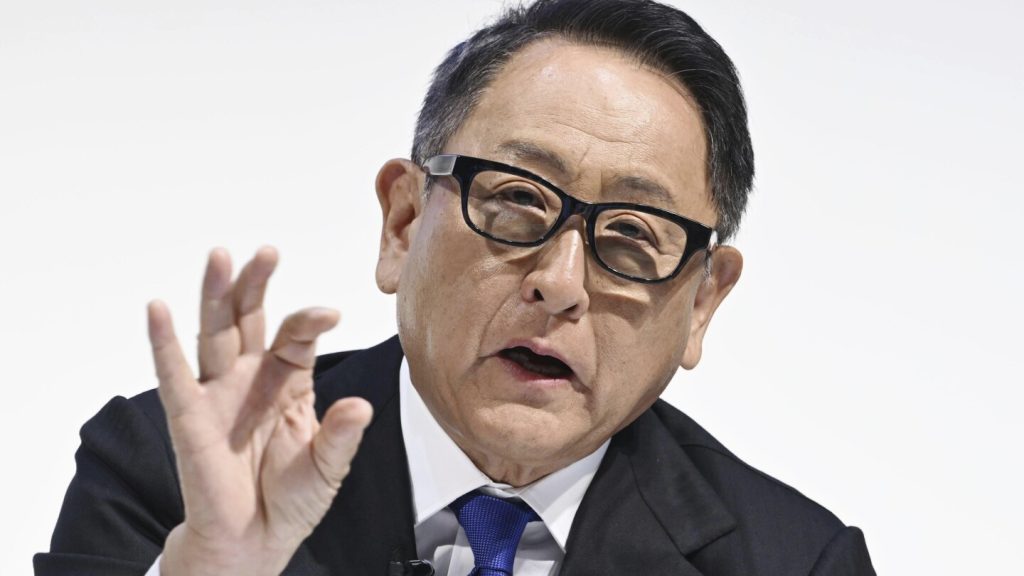Toyota’s chairman, Akio Toyoda, faces disgruntled shareholders as two major proxy groups demand a vote against keeping him on the board following recent fraudulent certification tests for vehicles. Despite no safety problems or recalls being announced, Toyota suspended production of three models, leading to a significant decrease in market value. Institutional Shareholder Services, owned by Deutsche Borse Group, advised investors to consider Toyoda accountable for the company’s recent troubles, noting his promises for change did not involve reshuffling the board.
The past year has seen a series of scandals involving improper checks on vehicles at various Toyota group companies, as well as other Japanese automakers like Honda, Mazda, and Suzuki. Proxy advisory company Glass Lewis & Co. recommended voting against the reappointment of Toyoda and another top executive, Shigeru Hayakawa, citing responsibility for internal control failures and the corporate culture under Toyoda’s leadership. The company also suggested adding more independent board members and disclosed a need for improved governance measures.
While the shareholders’ meeting on June 18 may bring some challenges for Toyoda, he is unlikely to be ousted, given the support from major Japanese companies with cross-shareholdings in Toyota. Despite the recent troubles, Toyota remains a leading automaker with strong financial performance, highlighted by a doubling of profits in the fiscal year ended in March. The company’s shift towards ecological vehicles, such as hybrids and hydrogen fuel, has been a focal point under Toyoda’s leadership, despite lagging in electric vehicles.
Auto analyst Kazunori Maki noted that the suspended shipments only affected a small percentage of global sales, suggesting that the recent scandal may not have a significant impact on Toyota’s overall performance. While the production halt could affect deliveries in the short term, there are no fundamental issues with the company’s culture or management, according to equity analyst Aaron Ho. Toyoda acknowledged the recent problems and compared them to past challenges, reassuring the public that Toyota will take steps to correct any issues.
In the face of shareholder demands for accountability and governance improvements, Toyoda is poised to address concerns at the upcoming meeting. Despite the challenges, Toyota’s strong financial performance and market position indicate resilience in the face of adversity. Toyoda’s leadership, while under scrutiny, has steered the company through previous crises, and he remains committed to making necessary corrections to maintain Toyota’s reputation for quality and innovation. The company’s long-standing relationships with shareholders and affiliates may also play a role in supporting Toyoda’s position at the helm of one of Japan’s most iconic companies.


